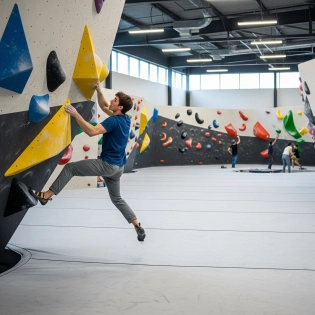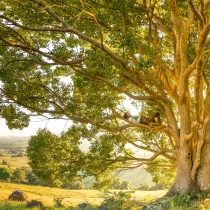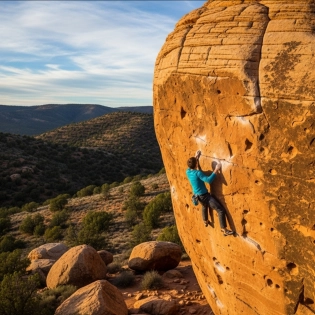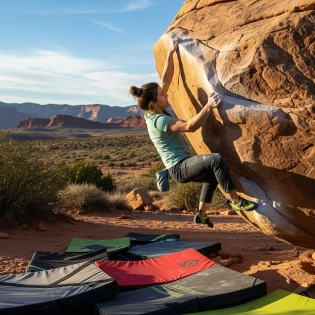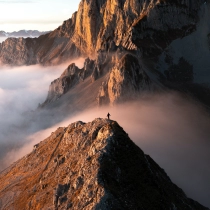
What are the 5 Steps to Better climbing bouldering?
Here are 6 exercises and tips that I use that have helped me climb better and get better at bouldering:
1. Slow and Quiet Climbing
This is probably one of my favorite exercises, and one I do every time I go climbing as a warm-up, and as I finish climbing.
What you do is you simply climb easier routes, but quietly. If you make any sound at all (not including clicking sounds from fingers or legs, or sounds from the shoes such as the rubber or the Velcro), you get off the route, and start the route over again.
What this does is it teaches you to be more precise with your movements and hand and foot placements, as you have to really grab the hold slowly and softly to not make a sound.
It strengthens your muscles because as you climb slowly, you will find yourself in more lock-off positions, where you are holding your body weight with more of your muscles.
It's a great warm-up when doing it on easier routes, and is great for some extra low intensity climbing at the end of the session, but, it's also a great exercise to keep in mind while climbing difficult routes also, as the precision in the movements and limb placements can really make a huge difference in the harder routes.
It's a great exercise to really give your technique a boost.
2. Moonboarding or other tension boards
Strength may not necessarily be more important than technique, but it is important. Grip strength, finger strength, and pinch strength are crucial for climbing harder routes, especially for overhanging routes.
Grip and pinch strength can be trained in isolation with punch blocks and other gear, but one of the best ways I have found to increase my strength, and not just in my hands, is the moon board. It is also much more interesting than just lifting a block of wood for a few seconds as you are actually climbing. It also strengthens your core, shoulders, back, and other muscles in addition to just grip strength.
If you have a moonboard or any kind of tension board, I highly recommend dedicating a session or two per week to climbing only on it. After even just a month, you should be able to see the difference in your strength.
3. Projecting
Many climbers choose to only climb routes that are around their climbing level. This could be out of comfort, or out of the idea that they just can't climb harder routes because they are not there yet.
Climbing routes that are above your climbing grade can actually be one of the best things you can do for your climbing.
First of all, you may actually be surprised and may be able to climb the harder routes.
If not, even if you work on the route and get just a few movements in, those movements can go a long way in improving your overall climbing abilities, knowledge, and experience.
Plus, when you actually finish the route, the amount of motivation you will feel will be unmatched, a perfect dose for climbing harder and choosing another project.
4. Strength training
As mentioned, strength training is very important. Not just finger strength, but general body strength. This includes the back, shoulders, arms, chest, core, and legs.
Also, training antagonist muscles is very important as it can help prevent injuries due to imbalances and poor posture.
I would add a few weight lifting or body weight training days to your climbing schedule, to make sure that you are giving your whole body a proper workout.
5. Feet work
Most beginner climbers don't understand the importance of feet work. They think it's just an upper body sport, mainly for the back and arms.
This is very far from the truth, as feet work can be the defining element between success and failure on a route. You can be as powerful and as strong as you want, but if you have poor footwork, everything will just be that much harder for you.
Climbers who are not very strong often times climb better than those who are because they have much better technique and foot work. They cannot rely on their strength since they don't have that much, so they climb with increasingly better technique.
6. Flexibility
I have seen flexibility being the element that allowed some climbers to send their projects. It is underestimated in importance. People either think it is not that important, or, they just don't want to do it because they don't like it.
This is unfortunate, because being flexible just gives you that extra advantage on the wall, and on the routes where strength is just not enough.








